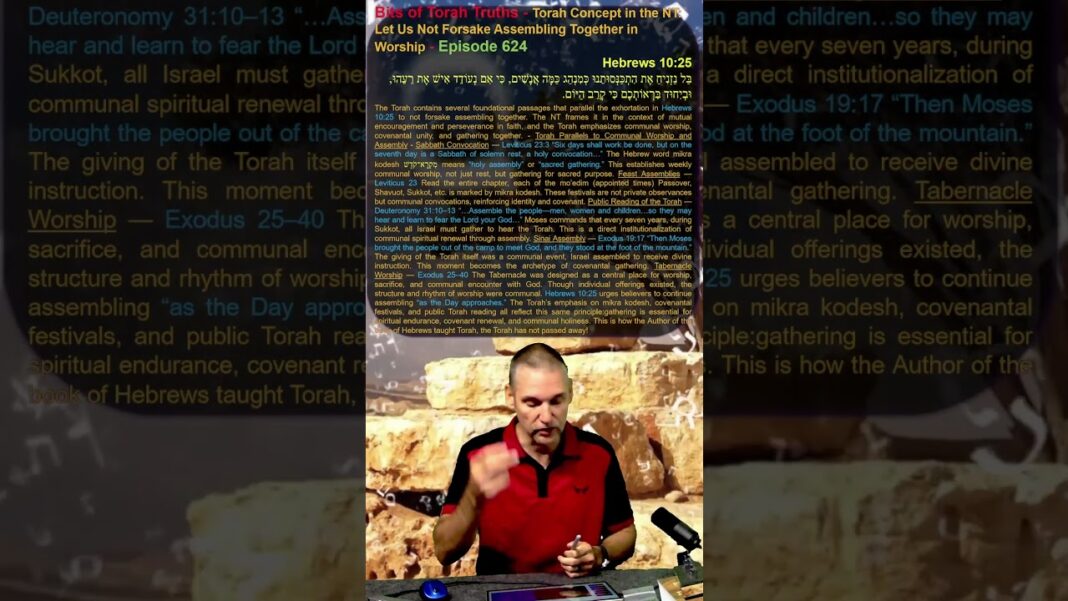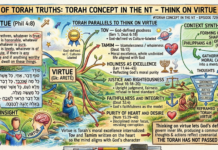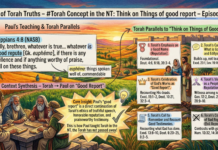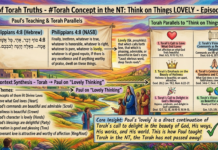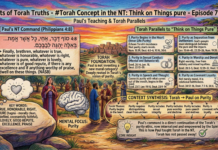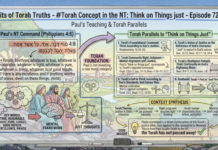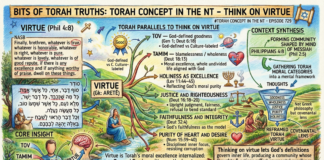Bits of Torah Truths – Torah Concept in the NT: Let Us Not Forsake Assembling Together in Worship – Episode 624
Hebrews 10:25
בַּל נַזְנִיחַ אֶת הִתְכַּנְּסוּתֵנוּ כְּמִנְהַג כַּמָּה אֲנָשִׁים, כִּי אִם נְעוֹדֵד אִישׁ אֶת רֵעֵהוּ, וּבְיִחוּד בִּרְאוֹתְכֶם כִּי קָרֵב הַיּוֹם.
#torah #torahwisdom #torahtruth #torahforlife #torah4you #torahtruth
Hebrews 10:25
10:25 not forsaking our own assembling together, as is the habit of some, but encouraging one another; and all the more as you see the day drawing near. (NASB)
https://www.matsati.com/index.php/category/bits-of-torah-truths/
The Torah contains several foundational passages that parallel the exhortation in Hebrews 10:25 to not forsake assembling together. The NT frames it in the context of mutual encouragement and perseverance in faith, and the Torah emphasizes communal worship, covenantal unity, and gathering together. – Torah Parallels to Communal Worship and Assembly – Sabbath Convocation — Leviticus 23:3 “Six days shall work be done, but on the seventh day is a Sabbath of solemn rest, a holy convocation…” The Hebrew word mikra kodeshמִקְרָא־קֹדֶשׁ means “holy assembly” or “sacred gathering.” This establishes weekly communal worship, not just rest, but gathering for sacred purpose. Feast Assemblies — Leviticus 23 Read the entire chapter, each of the mo’edim (appointed times) Passover, Shavuot, Sukkot, etc. is marked by mikra kodesh. These festivals are not private observances but communal convocations, reinforcing identity and covenant. Public Reading of the Torah — Deuteronomy 31:10–13 “…Assemble the people—men, women and children…so they may hear and learn to fear the Lord your God…” Moses commands that every seven years, during Sukkot, all Israel must gather to hear the Torah. This is a direct institutionalization of communal spiritual renewal through assembly. Sinai Assembly — Exodus 19:17 “Then Moses brought the people out of the camp to meet God, and they stood at the foot of the mountain.” The giving of the Torah itself was a communal event, Israel assembled to receive divine instruction. This moment becomes the archetype of covenantal gathering. Tabernacle Worship — Exodus 25–40 The Tabernacle was designed as a central place for worship, sacrifice, and communal encounter with God. Though individual offerings existed, the structure and rhythm of worship were communal. Hebrews 10:25 urges believers to continue assembling “as the Day approaches.” The Torah’s emphasis on mikra kodesh, covenantal festivals, and public Torah reading all reflect this same principle:gathering is essential for spiritual endurance, covenant renewal, and communal holiness. This is how the Author of the book of Hebrews taught Torah, the Torah has not passed away!
